第54章 NOTES(1)
AUTOBIOGRAPHY
[1]
Autobiography: Huxley's account of this sketch, written in 1889, is as follows: "A man who is bringing out a series of portraits of celebrities, with a sketch of their career attached, has bothered me out of my life for something to go with my portrait, and to escape the abominable bad taste of some of the notices, I have done that."[2]
pre-Boswellian epoch: the time before Boswell. James Boswell (1740-1795) wrote the famous Life of Samuel Johnson. Mr. Leslie Stephen declares that this book "became the first specimen of a new literary type." "It is a full-length portrait of a man's domestic life with enough picturesque detail to enable us to see him through the eyes of private friendship. . . ." A number of biographers since Boswell have imitated his method; and Leslie Stephen believes that "we owe it in some degree to his example that we have such delightful books as Lockhart's Life of Scott or Mr. Trevelyan's Life of Macaulay."[3]
"Bene qui latuit, bene vixit": from Ovid. He who has kept himself well hidden, has lived well.
[4]
Prince George of Cambridge: the grandson of King George III, second Duke of Cambridge, and Commander-in-chief of the British Army.
[5]
Mr. Herbert Spencer (1820--1903): a celebrated English philosopher and powerful advocate of the doctrine of evolution. Spencer is regarded as one of the most profound thinkers of modern times. He was one of Huxley's closest friends.
[6]
in partibus infidelium: in the domain of the unbelievers.
[7]
"sweet south upon a bed of violets." Cf. Twelfth Night, Act I, sc.
I, l. 5.
O, it came o'er my ear like the sweet sound That breathes upon a bank of violets, Stealing and giving odour.
For the reading "sweet south" instead of "sweet sound," see Rolfe's edition of Twelfth Night.
[8]
"Lehrjahre": apprenticeship.
Charing Cross School of Medicine: a school connected with the Charing Cross Hospital in the Strand, London.
[9]
Nelson: Horatio Nelson, a celebrated English Admiral born in Norfolk, England, 1758, and died on board the Victory at Trafalgar, 1805. It was before the battle off Cape Trafalgar that Nelson hoisted his famous signal, "England expects every man will do his duty." Cf. Tennyson's Ode to the Duke of Wellington, stanza VI, for a famous tribute to Nelson.
[10]
middies: abbreviated form for midshipmen.
[11]
Suites a Buffon: sequels to Buffon. Buffon (1707-1781) was a French naturalist who wrote many volumes on science.
[12]
Linnean Society: a scientific society formed in 1788 under the auspices of several fellows of the Royal Society.
[13]
Royal Society: The Royal Society for Improving Natural Knowledge;the oldest scientific society in Great Britain, and one of the oldest in Europe. It was founded by Charles II, in 1660, its nucleus being an association of learned men already in existence.
It is supposed to be identical with the Invisible College which Boyle mentions in 1646. It was incorporated under the name of The Royal Society in 1661. The publications of the Royal Society are called Philosophical Transactions. The society has close connection with the government, and has assisted the government in various important scientific undertakings among which may be mentioned Parry's North Pole expedition. The society also distributes $20,000 yearly for the promotion of scientific research.
[14]
Rastignac: a character in Le Pere Goriot. At the close of the story Rastignac says, "A nous deux, maintenant":--Henceforth there is war between us.
[15]
Pere Goriot: a novel of Balzac's with a plot similar to King Lear.
[16]
Professor Tyndall (1820-1893): a distinguished British physicist and member of the Royal Society. He explored with Huxley the glaciers of Switzerland. His work in electricity, radiant heat, light and acoustics gave him a foremost place in science.
[17]
Ecclesiastical spirit: the spirit manifested by the clergy of England in Huxley's time against the truths of science. The clergy considered scientific truth to be disastrous to religious truth.
Huxley's attitude toward the teaching of religious truth is illuminated by this quotation, which he uses to explain his own position: "I have the fullest confidence that in the reading and explaining of the Bible, what the children will be taught will be the great truths of Christian Life and conduct, which all of us desire they should know, and that no effort will be made to cram into their poor little minds, theological dogmas which their tender age prevents them from understanding." Huxley defines his idea of a church as a place in which, "week by week, services should be devoted, not to the iteration of abstract propositions in theology, but to the setting before men's minds of an ideal of true, just and pure living; a place in which those who are weary of the burden of daily cares should find a moment's rest in the contemplation of the higher life which is possible for all, though attained by so few; a place in which the man of strife and of business should have time to think how small, after all, are the rewards he covets compared with peace and charity."[18]
New Reformation: Huxley writes: "We are in the midst of a gigantic movement greater than that which preceded and produced the Reformation, and really only the continuation of that movement. . . .
But this organization will be the work of generations of men, and those who further it most will be those who teach men to rest in no lie, and to rest in no verbal delusion."ON THE ADVISABLENESS OF IMPROVING NATURAL KNOWLEDGE (1866)[19]
On the Advisableness of Improving Natural Knowledge: from Method and Results: also published in Lay Sermons, Addresses and Reviews.
For the history of the times mentioned in this essay, see Green's Short History of the English People.
[20]
The very spot: St. Martin's Borough Hall and Public Library, on Charing Cross Road, near Trafalgar Square.
[21]